Meet your lawyer: The Governor of Missouri
- Published
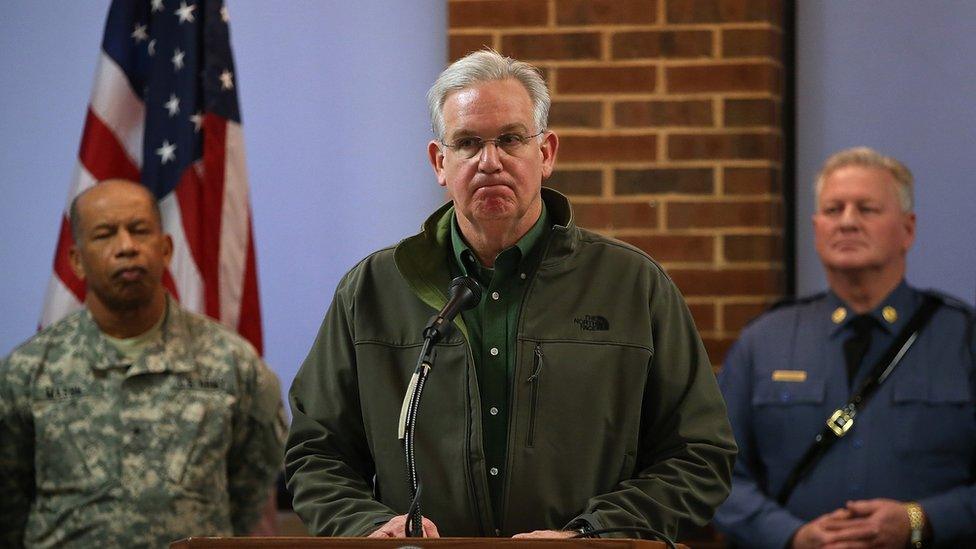
Missouri Governor Jay Nixon, who is a lawyer, has been assigned to serve as a public defender
Despite the fact that citizens are guaranteed legal representation in criminal cases in the US, court-appointed lawyers' offices are chronically underfunded. The fight between state-appointed lawyers and fiscally conservative politicians is playing out in a particularly bizarre way in Missouri.
One impoverished client currently facing assault charges in Missouri acquired a very powerful new lawyer this week: Governor Jay Nixon.
In a letter addressed to the governor, external, the Missouri State Public Defender's office director Michael Barrett wrote that Nixon has made the obligation to provide adequate counsel to poor clients in Missouri impossible by cutting $3.47m (about £2.6m) of the public defender's budget, and then again trimming its budget by 8.5% in the next fiscal year.
"This action comes even after the Civil Rights Division of the Department of Justice found that poor black children are being systematically deprived of their rights in Missouri due in large part to the lack of public defenders," Barrett wrote.
While the majority-Republican legislature of Missouri has approved additional funding for Barrett's office, Nixon used his executive authority to withhold it in 2014, external. The governor also vetoed a bill, external that would have capped the public defender's caseloads.
And so, Barrett decided to invoke a power he has never used before, to "delegate the legal representation of any person to any member of the state bar of Missouri". Barrett has assigned a case to the Governor, saying Nixon is "the one attorney in the state who not only created this problem, but is in a unique position to address it".
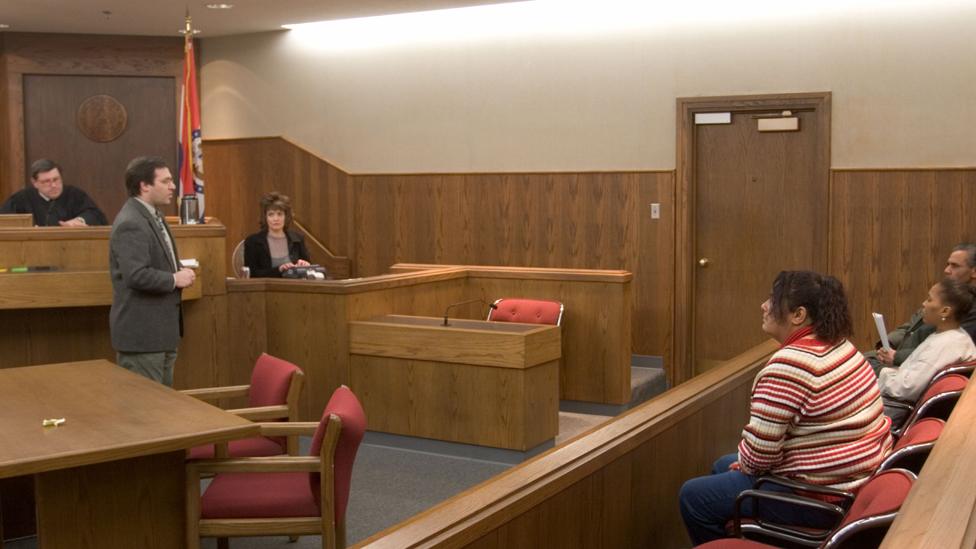
A public defender in Missouri
Nixon was admitted to the bar in 1981, and is still a lawyer in "good standing". A spokesman for his office wrote in a statement to BBC that "Gov Nixon has always supported indigent criminal defendants having legal representation." He argued there has actually been a 15% increase in funding to the state's public defenders.
This spat is just the latest - and perhaps most dramatic - example of public defenders across the country decrying what they say is a woefully underfunded, dysfunctional system of representation for the poor.
All US citizens have a right to legal representation in criminal cases - a right guaranteed by the 1953 Supreme Court case Gideon v Wainwright. In fact, Clarence Earl Gideon, the defendant who won the right to counsel, was born in and then buried in Missouri. The vast majority of defendants - an estimated 80% - have financial need.
But five decades since that decision was made, a patchwork system has emerged across the US where whether or not a poor defendant has access to a state-appointed lawyer with enough time and resources to properly handle the case depends entirely on where that defendant lives.
Per capita spending on public defence varies wildly - states like Massachusetts spend nearly $30 per citizen, Missouri spends only $5.85. In 43 states, external, the clients are forced to pay some portion of their own defence. This is particularly striking in South Dakota where poor defendants are charged $92 an hour for representation, external.
Tiny staffs of lawyers sometimes handle tens of thousands of cases. In New Orleans, public defenders handling misdemeanour cases were estimated to be able to spend an average of only seven minutes per client, external.
"If it's not unconstitutional, it's at least profoundly disturbing," says John Pfaff, a professor at Fordham Law School.


More from the BBC on US criminal justice:

Across the country, more and more public defender's offices are challenging their staggering caseloads and empty coffers by refusing to take new cases. In New Orleans, external, no new cases have been accepted since January. The American Civil Liberties Union is suing the New Orleans public defender's office, but the true goal is to get a judge to force the state to properly fund the programme, external.
In a presidential election year when issues of racial injustice in the US criminal justice system have been raised many times, the fight between Missouri's public defenders and its governor is an important reminder that many of the decisions that have a direct impact on real people - who are innocent until proven guilty - do not happen in the Oval Office. They are instead made on the local government level.
In his speech at the Democratic National Convention, President Barack Obama told the audience, "If you want more justice in the justice system, then we've all got to vote not just for a president, but for mayors, and sheriffs, and state's attorneys and state legislators."
The role of Missouri's governor in the funding of its public defender's office is a prime example, and in fact, the state is in the midst of a contentious race for governor. Nixon has reached his term limits and the question of whether his replacement would increase funding to the public defender's office is uncertain (neither the Republican nor Democratic nominees responded to inquiries from BBC News).
As for Nixon's assigned case, a spokesman made it sound highly doubtful that the governor will be accepting the assignment: "It is well established that the public defender does not have the legal authority to appoint private counsel."
As for the client, Barrett tells BBC News that he or she is currently free on bond.
"Their liberty would not be at stake if the governor contests this," he says.
- Published3 September 2015
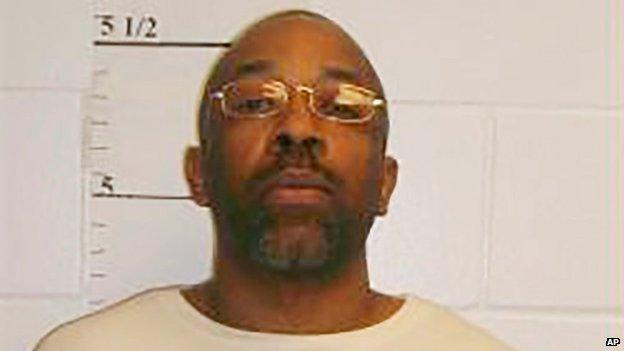
- Published12 February 2016
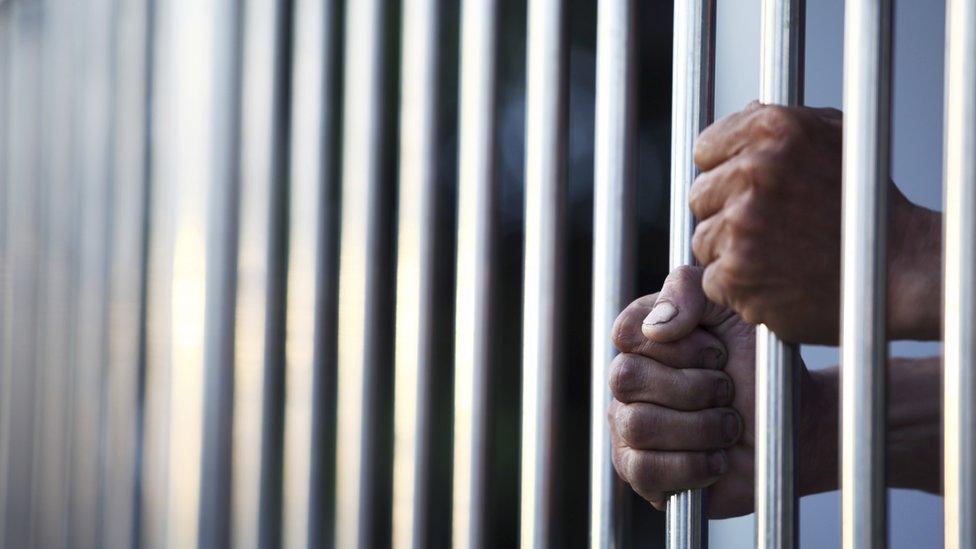
- Published1 October 2015
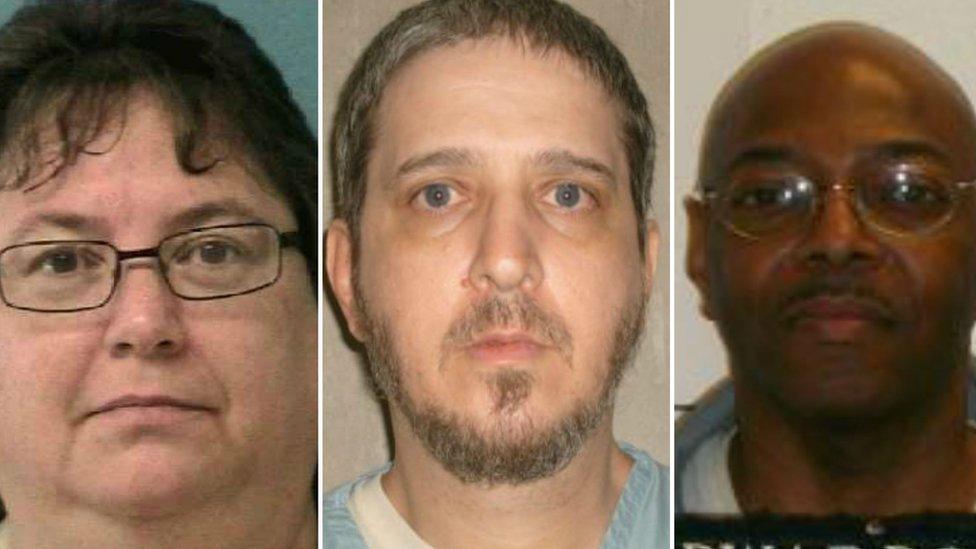
- Published5 January 2015
